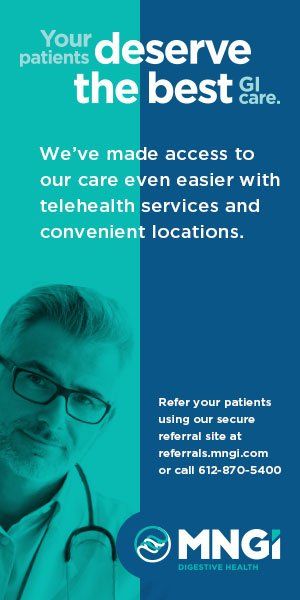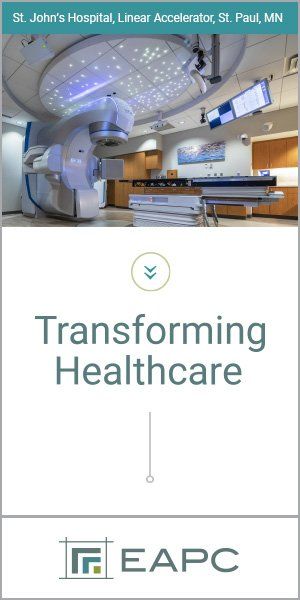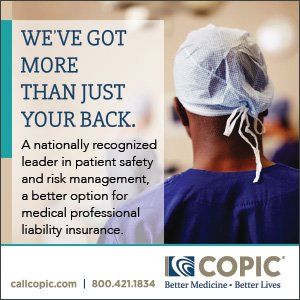he COVID-19 vaccine was developed under an unprecedented campaign labeled “Operation Warp Speed.” Nine months after the World Health Organization (WHO) declared the COVID-19 pandemic, a nurse from Queens, New York received the first US COVID-19 vaccine on December 14, 2020. Over the next four months, almost 900 million doses of COVID-19 were administered globally. In April of 2021, the Centers for Disease Control (CDC) and Food and Drug Administration (FDA) reported that the Johnson & Johnson vaccine had led to six cases of increased blood-clotting and one woman had died. This fueled an emerging, well-developed arsenal of COVID-19 vaccine disinformation available on various media outlets and communication platforms, including print, radio, podcasts, television, digital media, Facebook, WhatsApp, etc. Conspiracy theorists and anti-vaxxers deftly maneuvered the fear and uncertainty of the COVID-19 pandemic and helped fuel a resurgence in vaccine hesitancy. Unfortunately, the hesitation was not just regarding the COVID-19 vaccine, but also impacted attitudes and beliefs about essential childhood vaccines. Rates began to decline, leaving communities vulnerable once again to vaccine preventable diseases.
Public Health
Vaccine Confidence
Promoting trust during an infodemic
BY SHEYANGA BEECHER, CNP, MSN, MPH
A Negative Ripple Effect
By July 2022, WHO and UNICEF called attention to this alarming trend, signaling a “red alert” for child health, evidenced by the largest sustained decline in childhood vaccinations in 30 years. The UNICEF Executive Director indicated that while they expected a lag in immunizations, the continued decline could not be attributed to pandemic related disruptions. Diphtheria, tetanus, toxoid and pertussis vaccine rates as well as the first dose of measles vaccine rates dropped to their lowest levels since 2008. In addition, there were notable gaps in HPV and polio vaccine series.
Often, misinformation is more available than accurate information.
This global trend directly impacted the health of Americans. In June of 2022, an unvaccinated adult in New York contracted polio and became paralyzed. This was the first documented case of polio in America in nearly a decade. The single case was enough to declare a public health emergency, and wastewater samples indicated that polio had been circulating for several months. The virus was able to spread because of the greater frequency of international travel and lower immunization rates in particular New York communities.
Nationally, there was an increase in measles cases, including here in Minnesota. Last year, 22 children in the Twin Cities were infected with measles- fourteen of these children had traveled overseas (Denmark, Kenya, Somalia) where measles was common and circulating. These children then infected an additional eight unvaccinated children. In all, at least nine of these children were hospitalized.
To establish herd immunity and control the spread of measles, at least 95 percent of a community needs to be vaccinated. However, the rates of measles vaccination vary widely across neighborhoods and schools. Some are well covered at the 95 percent level, and others are concerningly low, at 50-60 percent. Pockets of under-vaccinated communities always pose the greatest risk for outbreaks of vaccine-preventable diseases. Although numbers in Minnesota for the 2022 measles outbreak (22 cases) were not as high as the 2011 outbreak (26 cases) and the 2017 outbreak (75 cases), public health research shows we are at definitely at risk of another outbreak knocking on our door. How do Minnesotans prevent this, especially during a time when misinformation is readily available and shared?
Defining an Infodemic
In 2020, the WHO coined the term ‘infodemic’ to describe too much information, including false or misleading information, in digital and physical outlets during a disease outbreak. Can we attribute the resurgence in vaccine hesitancy and declining immunizations to the infodemic? What role does such a phenomenon have for declining childhood vaccine coverage and does this phenomenon impact all populations equally?
In 2022, the Hennepin Healthcare Pediatric Mobile Health team partnered with the United States Office of Assistant Secretary for Health (OASH) to determine factors that improve vaccine confidence and increase vaccine uptake. The Pediatric Mobile Health (PMH) team interviewed community leaders representing public health agencies, the education sector, media firms and Black Indigenous and People of Color (BIPOC) facing organizations. The team also held focus groups with Latino and other community members and surveyed PMH patients. Results from the community assessment, over eight months, indicate that increasing access to vaccines and promoting trust are key strategies to promote vaccination, especially in BIPOC communities residing within Minneapolis and the neighboring cities.
Early in the pandemic, the ability to access health care was highlighted a significant barrier for many families. Due to shelter-in-place orders and restricted capacity of health facilities, families fell behind in routine preventative care. One community leader noted, “parents fell behind on their children’s vaccinations due to COVID. Also, the modes through which they would typically receive important health care reminders and education have been unavailable because of the lockdown and social distancing.” Of course, access to preventative care such as immunizations was only exacerbated for some high-risk populations who had always faced challenges with reliable transportation, child care, etc. As another community leader noted, “Even if there was adequate supply, lack of access to vaccines has made it difficult for my community members to maintain their vaccination status.” In addition to vaccines being more accessible, participants requested that accurate information about vaccines should be more readily available. Information should be shared in the communities and relayed from trusted community members who looked like them and preferably spoke the same language.
In addition to barriers to access, some participants expressed that safety and efficacy concerns influenced the decision to vaccinate themselves or family members. Some of this shift in thinking was a result of the infodemic associated with the COVID-19 vaccine roll out.” As one community member noted, “It’s a lot of information to absorb”, and often, misinformation is more available than accurate information. A community leader noted, “I could depend on the reliability of early childhood vaccines to persuade people to take the COVID vaccines. Now people’s resistance to COVID vaccines is driving mistrust of early childhood vaccines.”
Not getting vaccinated is not risk free.
In general, participants were aware vaccines are important and effective in preventing disease. One person said the inoculations she received as a child have maintained her health into adulthood: “the effectiveness grows with you. I don’t have too many ER stays. I rarely get sick.” A patient who identified as Latino said, “I know a person in Honduras who was not able to vaccinate her daughter, and her daughter was infected with polio. Her daughter did not recover from polio and is now paralyzed. So, it is important for my kids to be vaccinated.” Others did not have such personal experiences with vaccine-preventable disease, primarily because vaccines have been so effective. Other participants found vaccines were necessary merely because they were a requirement for school.
Building Trust
While most patients reported that vaccines were safe, some did have safety concerns. Several individuals believed that vaccines caused illness; for example, flu shots give people the flu. One stated, “In early childhood, everything is developing newly. Those side effects are tremendous and can be more harmful than the infection itself.” Another person said early childhood vaccines could put children at higher risk for Autism and other diseases, adding “their chances would be different had they not been vaccinated.”
During this community assessment, a common theme emerged. Participants were most interested to receive their health information from trusted sources. The majority of participants indicated they first trusted a health care provider followed by a family member and then a trusted community leader. This approach was shared equally among racial/ethnic groups. However, sometimes a reputable, trustworthy source was lacking. One person indicated she does her own research; “I don’t trust nobody because everybody lies. I’m doing my own research now and determining what’s best for me. At the end of the day, it has to the right decision for me and my family.” Another person said trust is “earned, not just given. I lost my dad to COVID, and it took the trust away.” This participant went on to say that ongoing conversations about health concerns with his primary care provider could potentially restore trust. During an infodemic, the volume, noise and social media algorithms of misinformation can easily influence a patient’s viewpoint, especially if they are lacking a trusted relationship with their health care team.
Trust between the health care team and patient is under-valued. We sometimes place greater emphasis on academic credentials, titles, years of experience, patient load, etc. However, our patients may expect otherwise from us. One participant stated, “Doctors should have conversations with their patients, listen to their concerns and then guide them in the right direction with sound medical advice.” Notably, this participant stated a provider should listen first, and then offer medical advice. In busy clinics where one patient arrives late, another arrives early, and appointment slots are only 15 minutes long—it is easy to only offer the essential medical advice. Devoting time to sit in the space of uncertainty with a patient, acknowledging and seeking an understanding of their fears and concerns, may not result in an immediate positive vaccine decision, but it may build on the development of a trusting relationship. As providers, it is difficult to compete with the technology and speed of anti-vaccine information. Investing in strategies and partnerships to provide culturally sensitive, accurate vaccine information and developing trusted relationships with our patients is imperative.
Physicians are a trusted source of vaccine information and advice. When the opportunities arise, it is important to be curious about the patient’s concerns and empathize. When we meet a patient “where they are”—not just physically but in terms of values and communication style— the level of trust will grow. It can be helpful to acknowledge how difficult it can be to process so much competing, often unreliable information from social media, the internet and other sources. Even something as simple as noting scientific facts, such as “you can’t catch a disease from the vaccine”, or addressing vaccine fertility concerns, such as reassuring patients that mRNA cannot be incorporated into our DNA, may be helpful.
Our research clearly identified physicians as a trusted source for information to help families make vaccine decisions and to keep the dialogue around them open. If you have personal experience of a patient or infant contracting a vaccine-preventable disease, it can help build trust to share these stories. It can also be helpful to encourage vaccinated patients to encourage their friends and families to do the same. These people can be powerful advocates, and everyone should remember that not getting vaccinated is not risk-free.
Sheyanga Beecher, CNP, MSN, MPH, is the medical director of pediatric mobile health at Hennepin Healthcare. She is a pediatric nurse practitioner with a Master of Science degree in Nursing and a Master of Public Health degree from Johns Hopkins.
MORE STORIES IN THIS ISSUE
cover story one
Long COVID: Facing a shadow pandemic
By KATE MURRAY, MPH, AND RUTH LYNFIELD, MD
cover story two
Privatized Medicaid and MinnesotaCare: Bills could lead to review of zombie programs















